Enable Fusion reporting directly in Workfront
We recently adopted this best practice and I thought I would share with the community.
Sometimes, a problem surfaces with a Workfront record in which its clear that Fusion did not create or update the record in the expected way. When this happens, it can be time consuming or impossible to track down the specific execution so you can inspect the module inputs/outputs.
With that in mind, we started recording the scenario ID and execution ID to Workfront records as part of the create or update Workfront record modules in every scenario. Having these IDs as part of the Workfront record itself enables you to create Workfront reports that can:
1. Open the actual execution that created a record.
2. Open the actual execution that last updated a record (which may be different than the scenario that created it).
3. Count, filter, and group records that are created or updated by Fusion, by each scenario.
This enables you to answer questions like:
"This record doesn't look right. What did Fusion do to it?"
"How much time did Scenario X save us in total?"
"Which scenarios have the most (or least) usage?"
"Which project owners benefit the most from Scenario X?"
or anything else that requires you to associate Workfront records to the Fusion scenario(s) that acted on them.
To enable this, you need dedicated fields on every object's form(s) to which you can record a scenario ID and an execution ID. Each of these fields are needed twice: once to record the scenario and execution that created a record (POST SID and POST EID), and an other to record the scenario and execution that last updated the record (PUT SID and PUT EID).
The scenario ID can be hard-coded in modules, but I prefer to set it as a variable as the first step in a scenario.
The execution ID can be found in the General Functions tab.
Once you start recording this data, you can design any number of Workfront reports that use the IDs to inform you of relevant Fusion actions. Screen captures attached to show step-by-step actions to enable these features.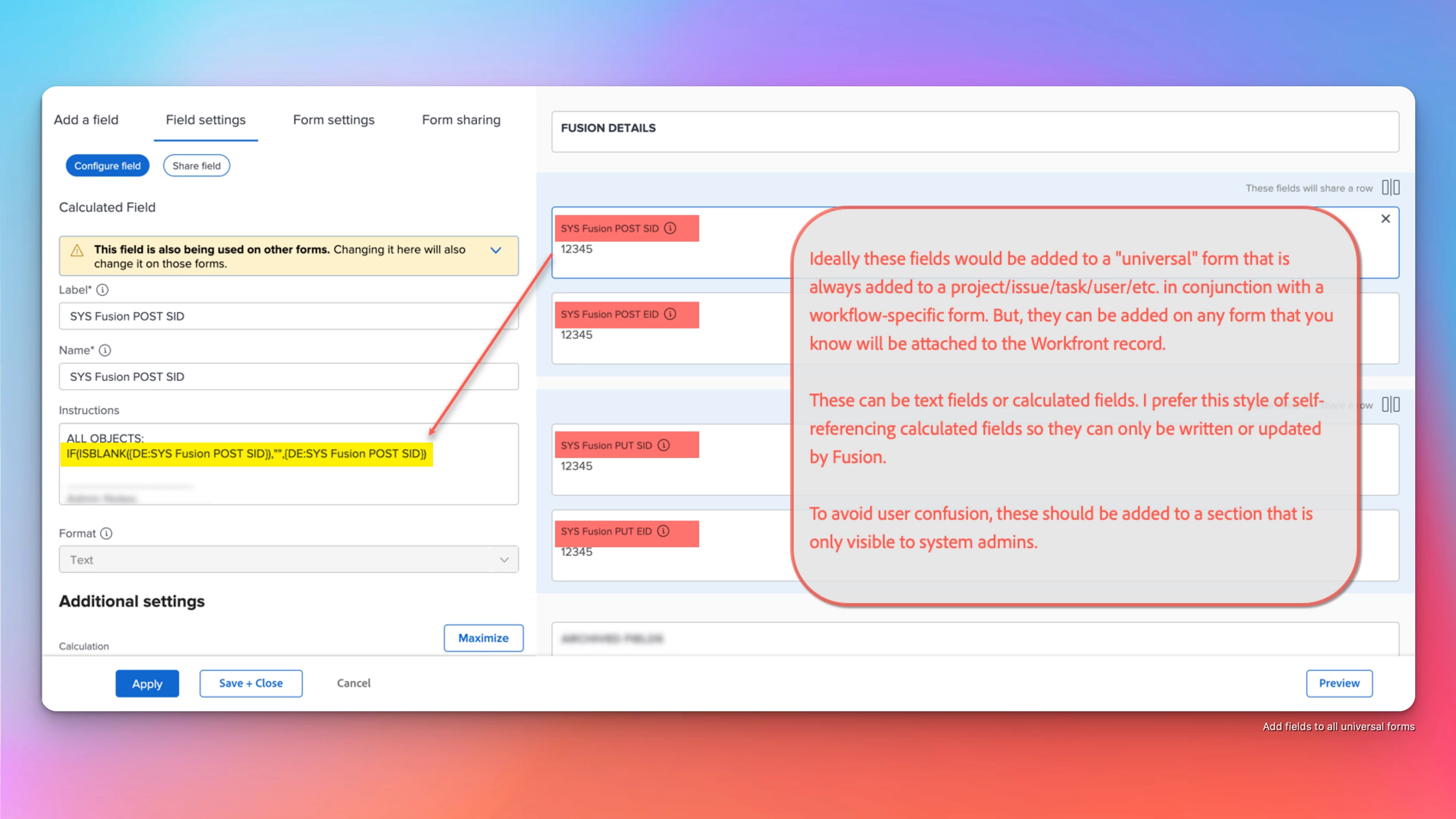
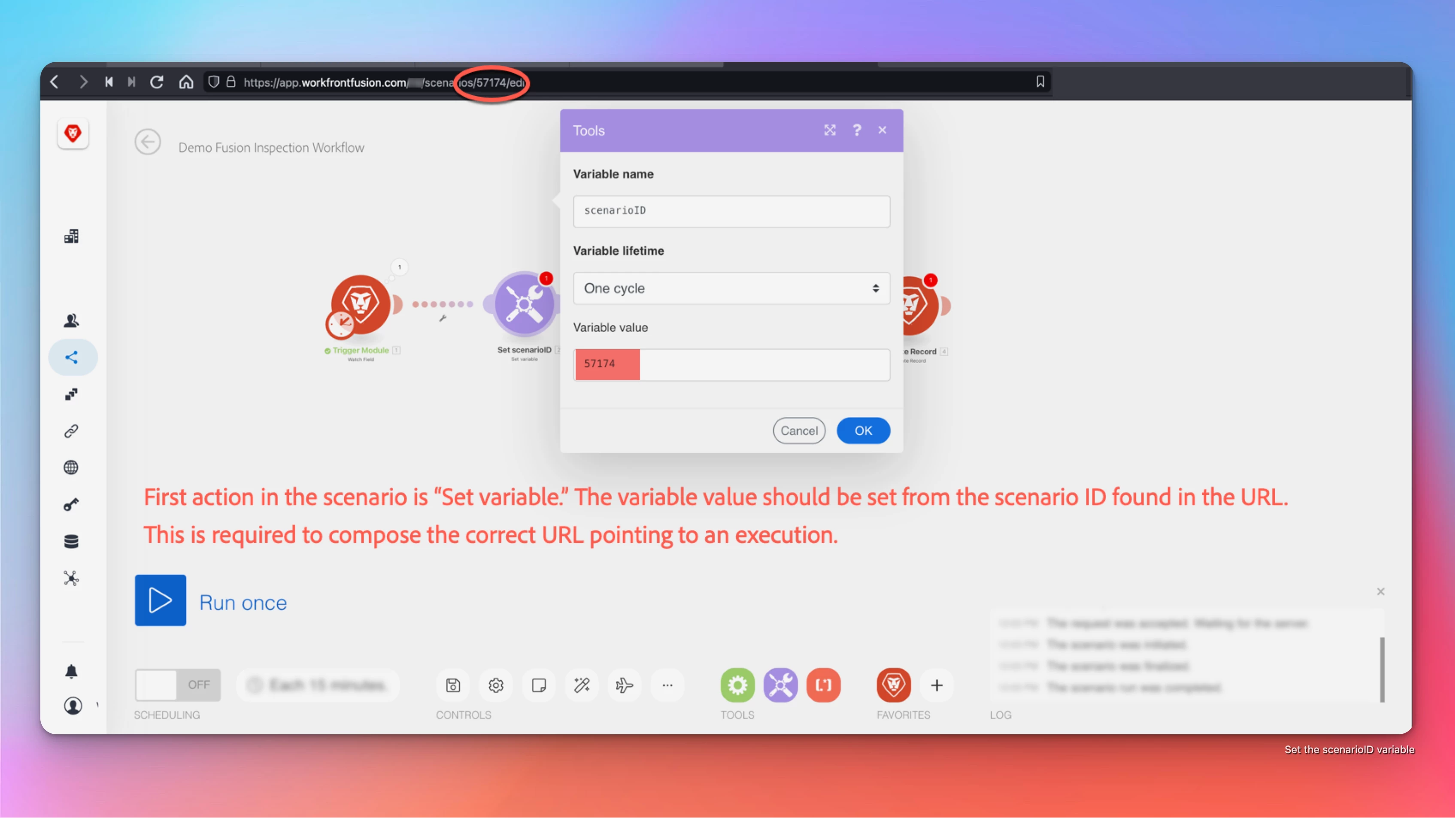
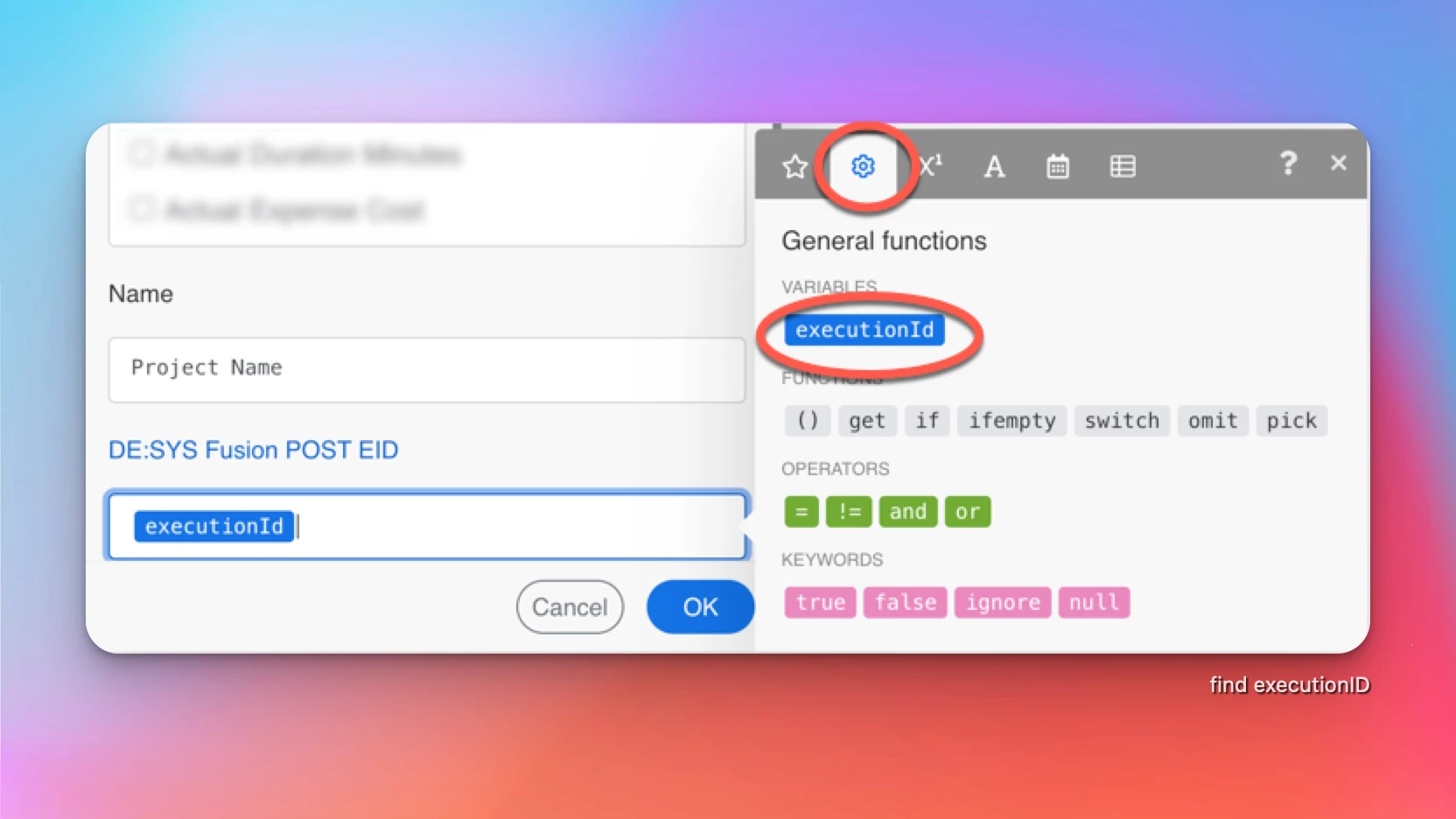
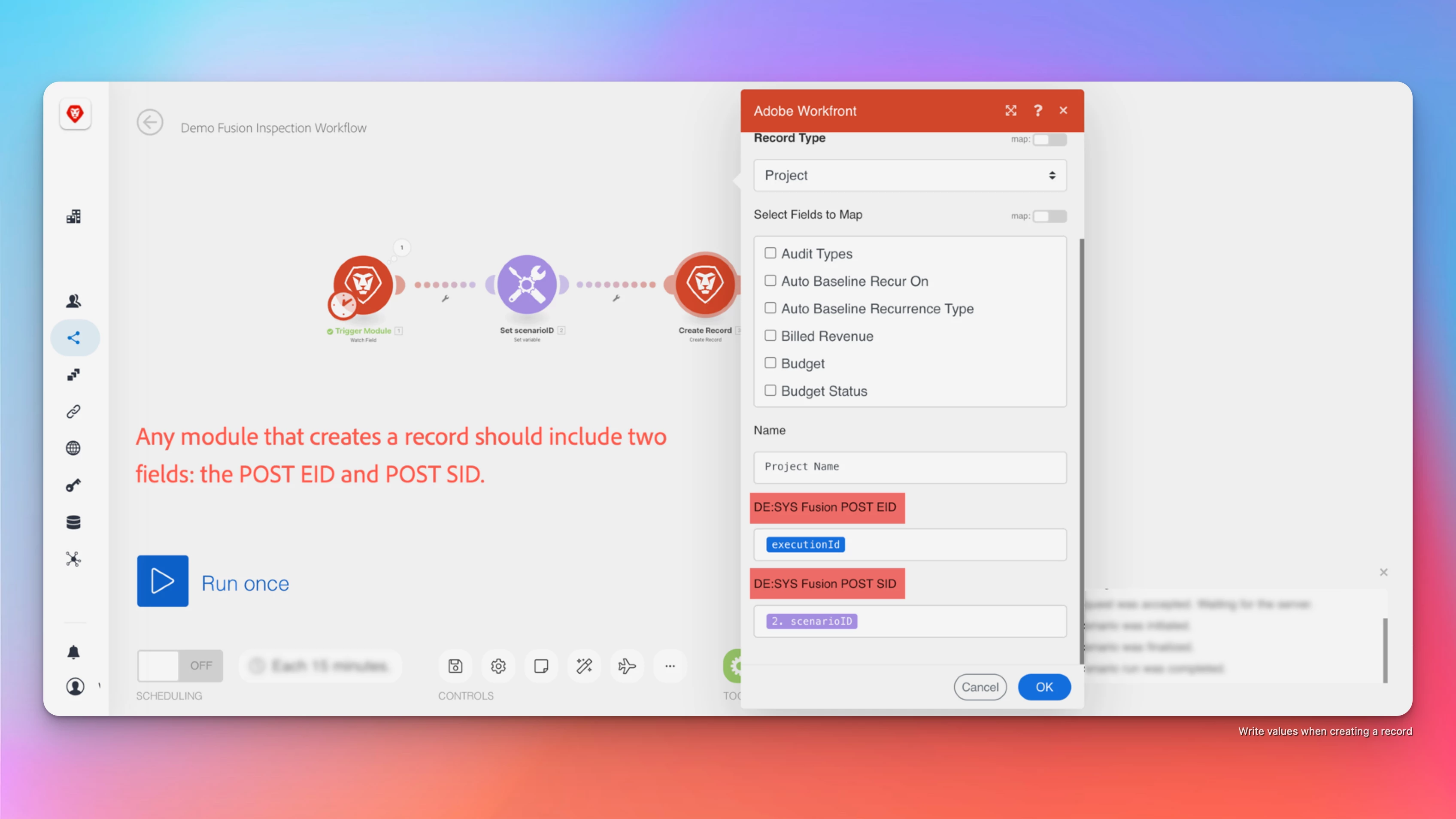
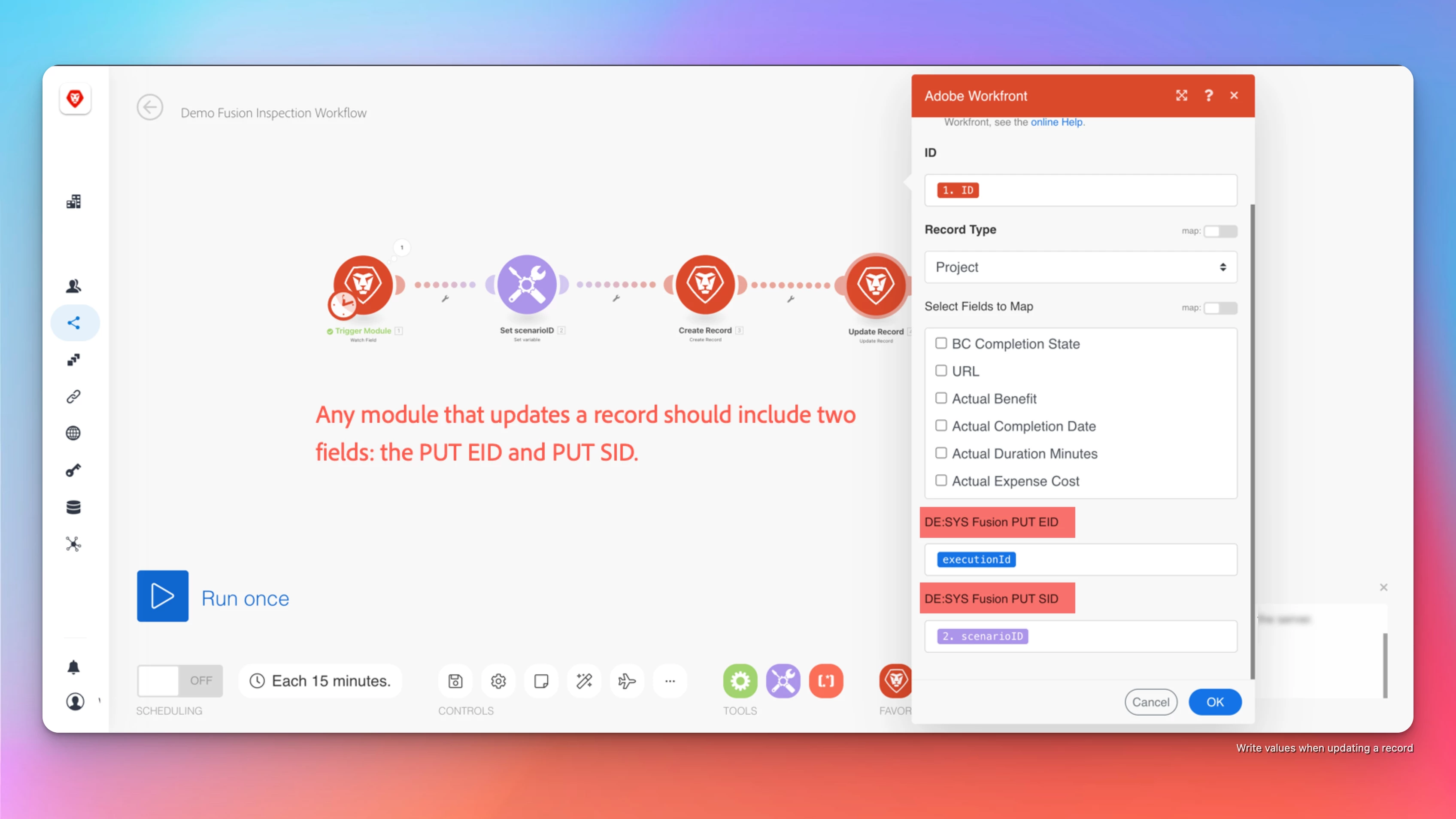
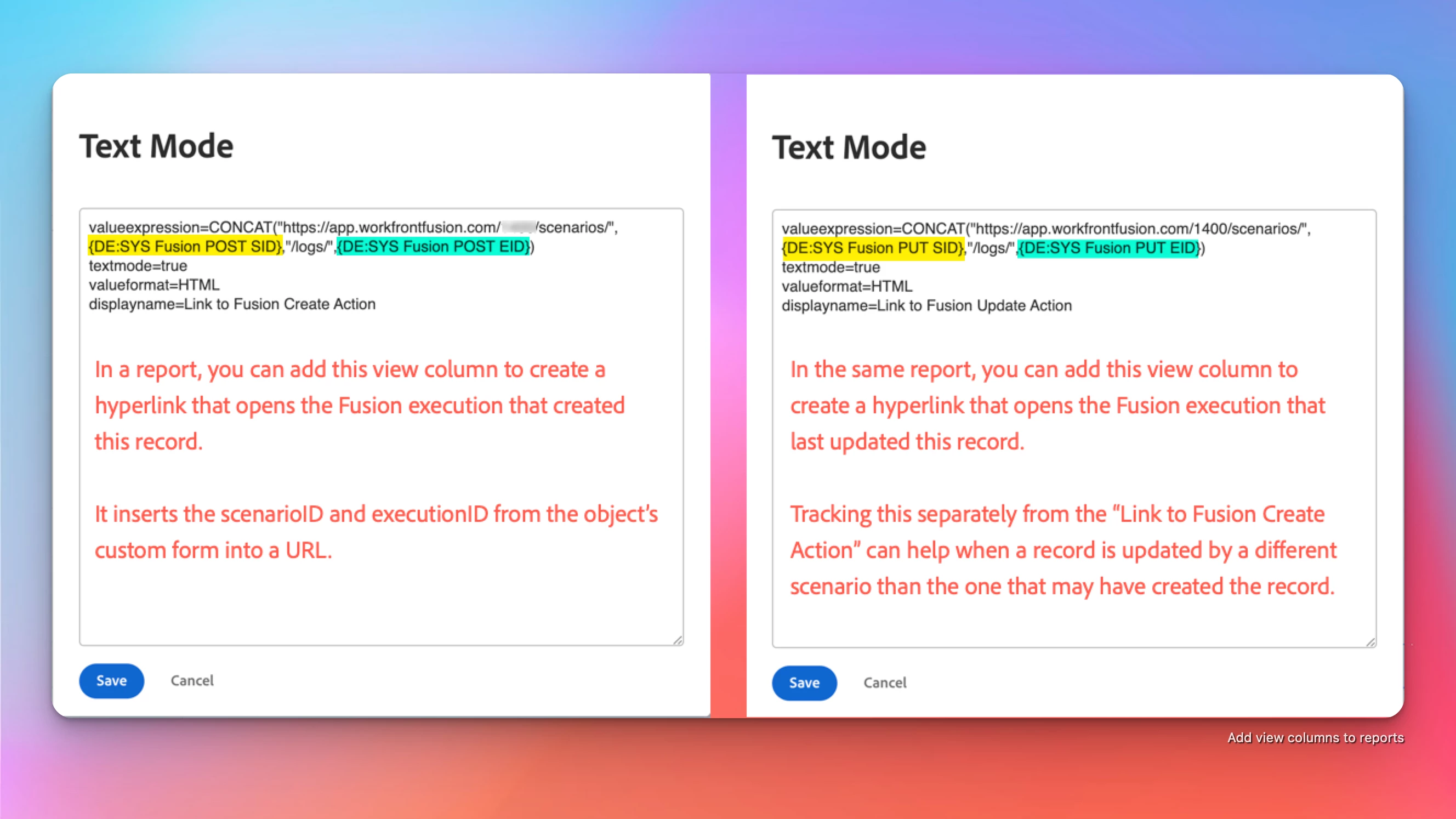
Good luck and enjoy!

